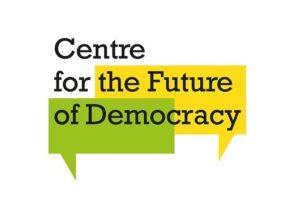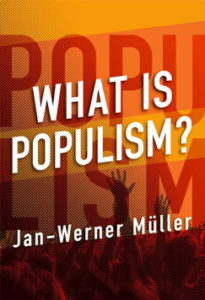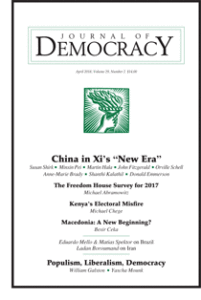Support for populist parties and agreement with populist views have diminished during the coronavirus pandemic, according to a “mega-dataset” assessing political attitudes of over half a million people across 109 countries since 2020.
There are clear signs of a turning tide for the “populist wave”, as the mishandling of coronavirus by populist politicians – along with a yearning for stability and a decline in “polarizing” attitudes – have begun to shift public opinion, say the authors of the new report, from Cambridge’s Centre for the Future of Democracy (CFD).
“The Great Reset: Public Opinion, Populism and the Pandemic” shows support for populist politics ‘collapsed’ during the pandemic but satisfaction with democracy also continued to falter. Citizens increasingly favour technocratic sources of authority, such as having “non-political” experts take decisions.
 Some of the key findings:
Some of the key findings:
• There has been a collapse in support for populism during the pandemic, whether measured using agreement with populist attitudes, trust in populist leaders, or vote intention for populist parties. Overall, populists are judged by their citizens to have mishandled the pandemic, relative to moderate or mainstream political leaders.
• Support for democracy fell during the pandemic in nations with large elderly populations especially vulnerable to the mortality risk associated with Covid-19. The largest declines in democratic support occurred in countries such as Germany, Greece, and Japan.
• The pandemic saw a “technocratic” shift in public attitudes worldwide, with increased trust in government and experts.
• By the start of summer 2020, belief that experts should be allowed to make decisions “according to what they think best for the country” had risen 14 percentage points to 62% in Europe and 8 percentage points to 57% in the US.
•  In countries where there was a political consensus around the economic and social measures taken to confront the virus, societies have become more united. In most countries – though notably, not in the United States – the pandemic saw declining levels of “affective polarisation”, or the dislike of people of opposing political viewpoints.
In countries where there was a political consensus around the economic and social measures taken to confront the virus, societies have become more united. In most countries – though notably, not in the United States – the pandemic saw declining levels of “affective polarisation”, or the dislike of people of opposing political viewpoints.
• Left-behind regions across Europe have seen a marked drop in populist attitudes – from Wales to Eastern Poland, from Central Spain to Central Greece, and from Southern Italy to Northern Hungary – and the poorest areas are now the most turned off by populism.
• The pandemic has brought good and bad news for liberal democracy. On the upside, we can see a decline in populism and a restoration of trust in government. On the downside, some illiberal attitudes are increasing, and satisfaction with democracy remains very low.
“From Erdogan and Bolsonaro to the ‘strong men’ of Eastern Europe, the planet has experienced a wave of political populism. COVID-19 may have caused that wave to crest,” said Dr. Roberto Foa, Co-Director of the CFD and the report’s lead author. “Electoral support for populist parties has collapsed around the world in a way we don’t see for more mainstream politicians. There is strong evidence that the pandemic has severely blunted the rise of populism.”
 The first report of the Center for the Future of Democracy examined levels of dissatisfaction with democracy in 154 countries, including “islands of contentment” like Switzerland, where a wide-ranging power sharing mechanism makes citizens happier.
The first report of the Center for the Future of Democracy examined levels of dissatisfaction with democracy in 154 countries, including “islands of contentment” like Switzerland, where a wide-ranging power sharing mechanism makes citizens happier.
“The pandemic has brought good and bad news for liberal democracy. On the upside, we see a decline in populism and a restoration of trust in government,” added Foa, a contributor to the National Endowment for Democracy’s Journal of Democracy. “On the downside, some illiberal attitudes have are increasing, and satisfaction with democracy remains very low.” RTWT







